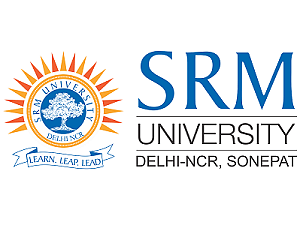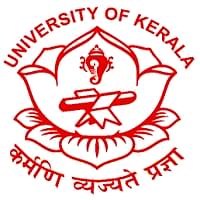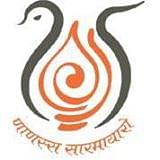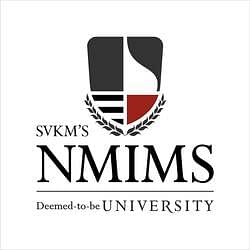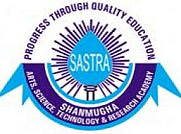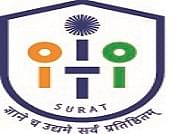Unlocking
the Depths of Literature: Pursuing a Ph.D. in English
The journey of pursuing a Ph.D. in English at top college is one that is both challenging and rewarding. It is a path
that delves deep into the complexities of literature, language, and critical
theory, offering scholars the opportunity to explore and contribute to a vast
and ever-evolving field. In this blog, we will explore the intricacies of
earning a Ph.D. in English, covering the admission process, eligibility
criteria, program structure, potential career paths, and the transformative
impact this degree can have on one's intellectual and professional life.
Admission
Process for a Ph.D. in English
The admission Ph.D. in English
typically involves several steps designed to assess the applicant's academic
background, research potential, and fit with the program. Here’s an overview of
the common stages:
- Researching Programs: Begin
by identifying universities and programs that align with your research
interests. Consider faculty expertise, research facilities, and the
program's overall reputation.
- Meeting Eligibility Criteria:
Ensure you meet the eligibility criteria, which usually include a Master’s
degree in English or a related field, a strong academic record, and
relevant research experience.
- Preparing Application Materials: Most
applications require the following:
- Transcripts:
Academic records from all post-secondary institutions attended.
- Letters of Recommendation:
Typically, three letters from professors or professionals who can attest
to your academic abilities and research potential.
- Statement of Purpose: A
detailed essay outlining your research interests, academic background,
and reasons for pursuing a Ph.D. in English.
- Writing Sample: A
substantial piece of academic writing, such as a research paper or a
chapter from your Master’s thesis.
- Curriculum Vitae (CV): A
comprehensive CV highlighting your academic achievements, research
experience, publications, and any relevant work experience.
- Standardized Test Scores: Some
programs require GRE scores, although this requirement is becoming less
common.
- Interview: Some
programs may require an interview, either in-person or online, to further
assess your suitability for the program.
- Application Fee: Be
prepared to pay a non-refundable application fee.
Eligibility
Criteria for a Ph.D. in English
Eligibility Ph.D. in English can vary by institution, but generally include the following:
- Academic Qualifications: A
Master’s degree in English or a closely related field with a strong
academic record.
- Research Experience:
Demonstrated research experience, which could include a Master’s thesis,
publications, or research projects.
- Language Proficiency: For
non-native English speakers, proof of English proficiency (e.g., TOEFL or
IELTS scores) is often required.
- Letters of Recommendation:
Strong letters of recommendation that highlight your academic and research
abilities.
- Statement of Purpose: A
well-articulated statement of purpose that aligns with the research
interests and strengths of the faculty at the institution.
Program
Structure and Curriculum
A Ph.D. in English college Noida
typically spans 4-7 years, depending on the institution and the student’s
progress. The program is divided into several phases:
- Coursework: The
initial years involve advanced coursework in literary theory, critical
analysis, and specialized seminars related to your research interests.
This phase aims to build a solid foundation in literary studies and
research methodologies.
- Comprehensive Exams: After
completing coursework, students must pass comprehensive exams that test
their knowledge of major literary periods, genres, and critical theories.
These exams are designed to ensure that students have a broad and deep
understanding of the field.
- Research Proposal:
Following the comprehensive exams, students develop a detailed research
proposal outlining their dissertation project. This proposal is typically
presented and defended before a committee of faculty members.
- Dissertation Research and Writing: The bulk of the Ph.D. program is dedicated to conducting original
research and writing the dissertation. This phase involves extensive
reading, analysis, and synthesis of primary and secondary sources.
- Dissertation Defense: The
final step is defending the dissertation before a committee of faculty
members. This defense is an oral examination where the student presents
their research findings and responds to questions and critiques.
Career
Opportunities
Earning a Ph.D. in English opens up a variety
of career opportunities, both within academia and beyond. Here are some
potential career paths:
- Academia: Many Ph.D. graduates pursue careers as
professors or lecturers at universities and colleges, where they teach
courses, conduct research, and publish scholarly work.
- Research: Ph.D. holders can work as researchers in
academic institutions, think tanks, and research organizations,
contributing to the advancement of knowledge in literature and related
fields.
- Publishing:
Opportunities exist in the publishing industry as editors, literary
agents, and writers, where a deep understanding of literature and strong
analytical skills are highly valued.
- Writing and Journalism: Ph.D.
graduates can work as writers, journalists, and content creators,
producing articles, books, and multimedia content that draws on their
expertise in literary analysis and critical thinking.
- Cultural Institutions:
Museums, libraries, and cultural organizations often seek individuals with
advanced knowledge of literature and culture for roles in curation,
education, and programming.
- Corporate Sector:
Skills in critical thinking, analysis, and communication are transferable
to various roles in the corporate sector, including marketing,
communications, and human resources.
The
Transformative Impact of a Ph.D. in English
Pursuing a best Ph.D. English college
is not just about gaining advanced knowledge in literature; it is also a
transformative journey that shapes your intellectual and personal growth. Here
are some ways in which a Ph.D. in English can be transformative:
- Deepening Knowledge: The
program offers an opportunity to delve deeply into specific areas of
interest, fostering a profound understanding of literary texts, theories,
and contexts.
- Developing Critical Skills: Students
develop advanced critical thinking, analytical, and research skills that
are applicable across various fields and professions.
- Fostering Creativity: The
creative aspect of literary studies encourages innovative thinking and new
perspectives, both in academic research and in practical applications.
- Building a Network: Ph.D.
programs provide a platform to connect with scholars, researchers, and
professionals in the field, building a network that can support your
academic and career development.
- Contributing to Knowledge:
Completing a dissertation allows you to contribute original research to
the field, advancing the understanding of literature and potentially
influencing future scholars.
For more queries contact us through our
website: universityfindo. It’s a platform where you gets platform to fulfil
your dreams with placement in campus.





